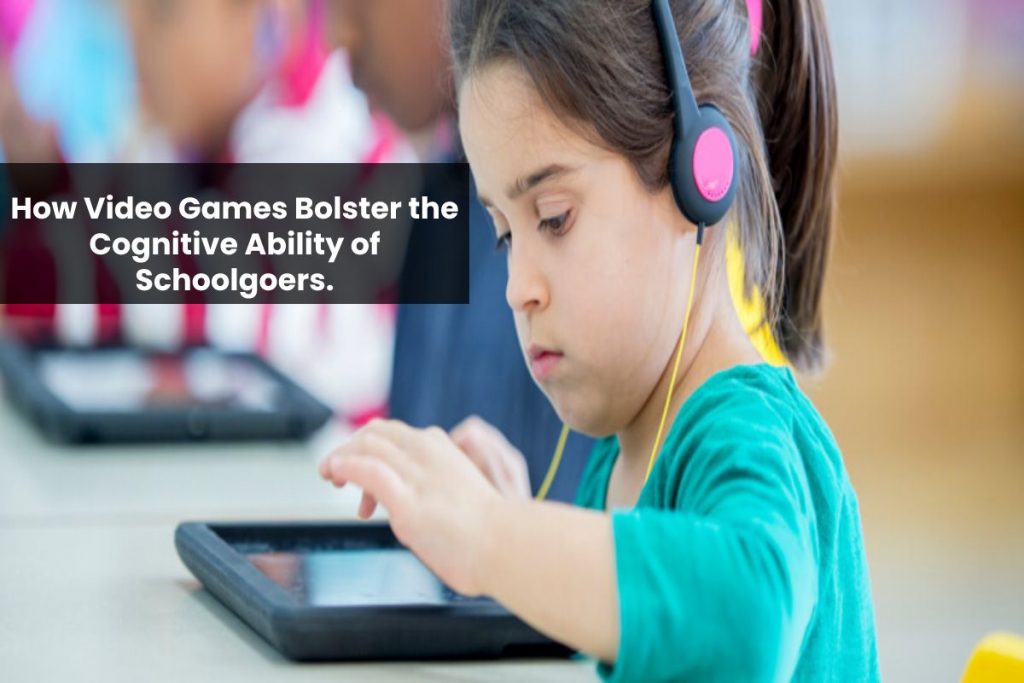Table of Contents
Introduction
Video Games Bolster – With the rapid advancement in technology, the millennial stands out as the most tech-savvy generation of all time. Today’s Toddlers are well conversant with digital communication tools such as WhatsApp, Facebook, Skype, and Instagram for fun, learning, socialization, and creativity. Video gaming is one of the main reasons schoolgoers are motivated to use technological tools such as TV, laptops, smartphones, computers, and iPhones. Guided use of video games can improve the bolder cognitive ability of schoolgoers.
Whether we like it or not, we cannot avoid the fact that young schoolgoers shall continue to spend much of their available time in front of screens or/and with smartphones in their hands from the age of eight years old. Instead of ranting, raving, or cautioning them from excessive use of those digital communication tools, we can mold them to get the best out of them for their improved cognitive ability, emotional balance, socialization maturity, and educative purposes.
The Connection between Video Gaming and Cognition
Video games are also called computer games. Then, what is a video game? A video game or computer game is an electronic gaming system that involves interaction with a user interface or input device (such as a controller, keyboard, joystick, or motion-sensing device) to produce visual feedback.
The visual feedback is produced on a video display device such as a computer monitor, TV, or touchscreen. It is integrated with audio feedback delivered through headphones or speakers. It is also worth noting that not all video games are computer games, e.g., chess. Due to advancements in technological know-how, video games have been extended to mobile gaming on smartphones and iPhones.
On the other hand, cognition refers to the mental process of obtaining knowledge and understanding through senses, thoughts, and experiences. Cognition prompts the existing skills, abilities, and knowledge to constructive knowledge retention, problem-solving, decision-making, evaluation, and idea generation.
Compared to other audio-visual and visual gaming media, video gaming is very popular among generation Z. It continues to rise in popularity because it is believed to enhance the cognitive abilities and functions of the individual learners involved. The salient difference between video games and other media lies in the level of interaction between objects in the game.
So, what is the link between video games and cognition? Well, video games have been associated with both negative and positive impacts on an individual’s mental health. On the negative side, it is associated with addiction, aggression, and depression. And on the positive aspect, researchers and experts argue that video games enhance mental health, emotional stability, cognitive functions and abilities, and the general well-being of school goers.
How Video Games Bolster the Cognitive Ability of schoolgoers
Researchers and concerned health experts are documenting evidence to show how and to what extent video games impact the absorbing psychological experience for mental functioning.
Below are some ways in which video games bolster the cognitive abilities and skills of school learners:
For gamers who are schoolgoers, playing video games enhances their ability for sustained focus, and they can successfully multitask. Learners who play multitasking video games tend to improve their problem-solving skills, mathematical intelligence, pro-social behaviors, and sustained attention.
In comparison to non-gamers, video gamers also exhibit well-grained knowledge, analogy, memory, and deductive reasoning. Several studies show that video games coupled with ever-evolving technology can improve executive functioning ability.
Moreover, it is evident that video games improve the basic visual processes of learners in two distinct ways: improved visual contrast sensitivity and successful treatment of amblyopia.
In regard to improved visual contrast sensitivity, it involves the ability of the visual system to separate objects from the background. Visual contrast sensitivity test involves the presentation of adjusted digits or letters to become the same brightness to the background until they disappear. Studies indicate that fifty hours of video gaming spread evenly for twelve weeks can enhance the visual contrast sensitivity in school-going children or learners.
On the other hand, video gaming is argued to treat amblyopia successfully. Amblyopia is also referred to as the lazy eye. Amblyopia or lazy eye is reduced vision in one eye caused by abnormal visual development early in life. Its signs and symptoms include an eye that wanders inward or outward, eyes that appear to not work together, squinting or shutting an eye, and poor depth perception. Lazy eye is common from childhood. Several research findings prove that video gaming can treat it to normal.
Conclusion
Researchers have documented crucial evidence that clearly shows that learners who engage in video games show a better range of cognitive abilities, specifically involving analogy, processing speed, deductive reasoning, and mathematical intelligence to those who do not engage in video gaming activities.

